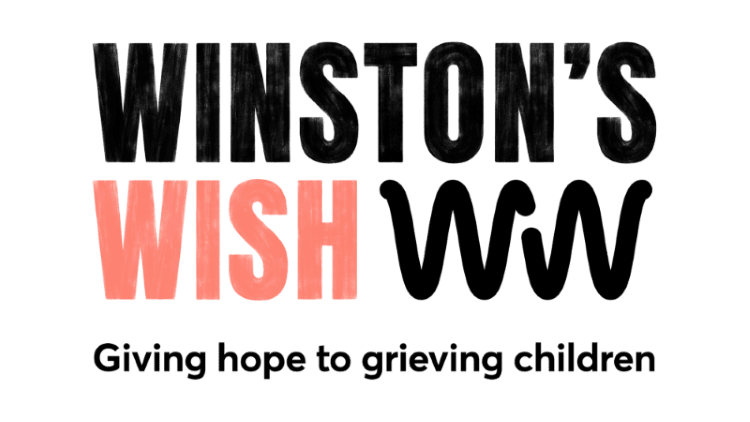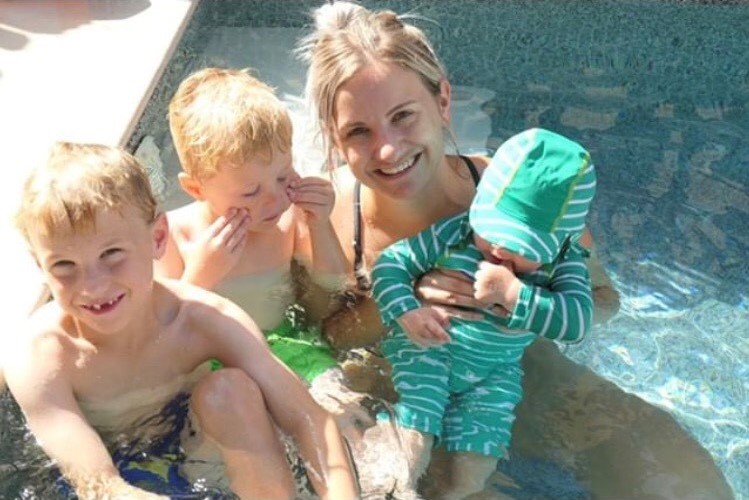Sarah Turner, aka The Unmumsy Mum, was a teenager when her mum died of cancer. This is an extract of her conversation with Mark Lemon on his podcast Grief is my Superpower about the death of her mum and how it has shaped her outlook on life.
You can listen to the whole podcast here:
I lost my mum to breast cancer when I was 15. It was something she had had for quite a lot of my childhood, first diagnosed when I was in about Year 5 so I don’t know what that would make me, about 9 or 10 maybe. Then we lived with it. There was a brief period of remission and then it came back. She died on Boxing Day 2002. I’ve had better Christmases, it has to be said.
I feel like in some ways I coped better at 15, in terms of resilience and just getting one with life, than I would have coped if it happened to me now. I think I was quite self-centred in the way that teenagers just are. So it was a massive shock and completely devastating, but there was also an element of I need to do my GCSEs and that was what mum would have wanted me to do, so I need to crack on.
I think I had a long weekend and the Monday off for the funeral and then I went back to school on the Tuesday. I remember walking down the corridor and people looking because they’d had a note in assembly – ‘just FYI Sarah’s mum has died so can everyone tread carefully please’.
It’s weird how people close to you respond. I had friends who really stepped up to the plate and I had friends who, through no fault of their own, I think perhaps because they were too young or inexperienced or immature, whatever it might be, really struggled.
I had friends who never spoke about the elephant in the room. I don’t know if at times that was helpful, but it was straight back into, ‘shall we go and walk to geography together from PE?’ and no ‘I’m really sorry about your mum’.
And you also get – it’s a terrible thing to say, but almost like grief magpies – you get people who all of a sudden are a lot more interested in you than they ever were before because something exciting and dramatic has happened. At 15, somebody dying, it was drama at school, so people who perhaps weren’t as friendly with me before were all of a sudden ‘oh do you want to come round and be my new best friend?’ or ‘tell me more about your mum dying’.
But generally, friends and family rallied round and were there. I felt supported but I also wanted to just get on with it. I didn’t want somebody to sit me down and say how are you feeling. It was too soon. I wanted to throw myself back in to just studying. I just was desperate for things to be normal again, and even though that was naïve, and it can’t be normal again because you have to deal with it. I don’t know. There’s kind of an initial wave of ‘oh my god this is the worst thing’ and then I definitely did the bury my head in the sand and bury my feelings for about six months.
I think there was always a fear [from other people] of saying the wrong thing and therefore the decision was made not to say anything. Sometimes that was the right decision, because sometimes I didn’t want to talk about it. But sometimes all I wanted was for somebody to say something. It was like people stopped mentioning mum any more. But actually, even if it had had the risk of upsetting me because it was a fond memory, I would have rather someone had said ‘Sarah do you remember when your mum used to do this?’. Whereas actually, it was we won’t talk about her anymore because she’s dead and therefore that’s off-limits as a conversation. I felt like she was kind of being erased and that was hard.
Everybody I’ve ever spoken to who has lost someone will always describe that there will be a point, whether it’s a couple of months after, six months, a year, five years after, there will be a point when the biggest wave of grief will hit. For me, it was about six months after. So I had actually functioned pretty well, I went to school, I was cram revising, I was super studious, so for me, it would have been a real worry to let my exam results fall. And I’m sure there was an element of thinking mum would want me to do well so I just need to crack on. Life was normalish. And then summer came, I’d done my exams and then it kind of hit a bit I think and I started feeling very down.
I think the only thing that’s helped me, in terms of coping mechanisms, has been to focus on how lucky I am and what a privilege it is to have something to grieve. So for me, I know so many people who have had difficult relationships with their mum, or no relationship at all, or whose mum left and didn’t want anything to do with them, or who grew up in foster care, or all those things, that actually, yes my mum did die and she was poorly but my upbringing was a very happy one. Therefore, I’m sad because I’ve missed that and I’ve missed what comes after that, but there is still that very close relationship to mourn and I think that flips it on its head slightly to think that you feel lucky to have had something that’s missed.
People will throw the clichés at you, you know time heals and all the rest of it. And there may be times 10, 15, 20 years down the line where you still get that wave of grief but it does get easier because you learn to live with it and life does go on and you have to remember how fortunate you are to wake up and breathe every day. It’s definitely not to be taken for granted.
If you need advice or guidance on supporting a bereaved child then please contact us – you’ll find all the details on how to get in touch here.


